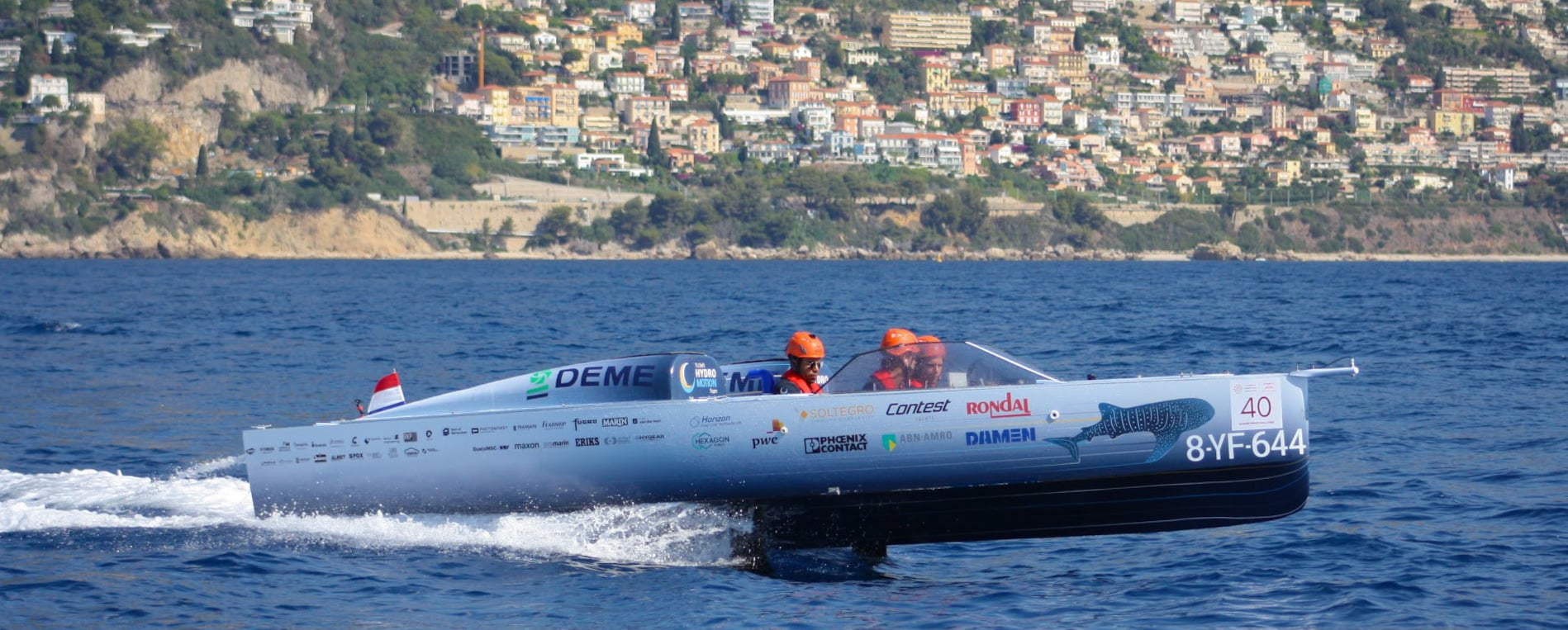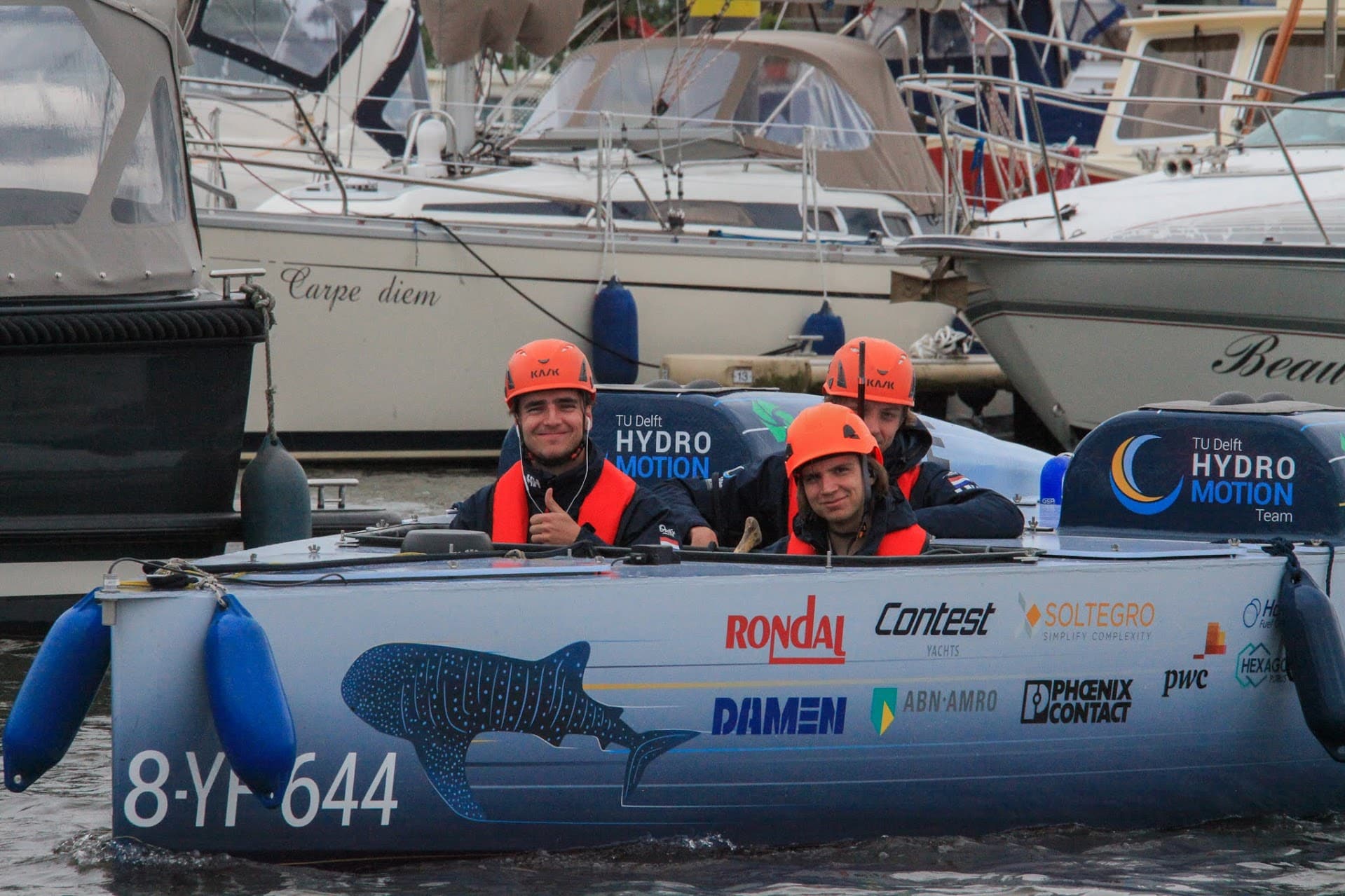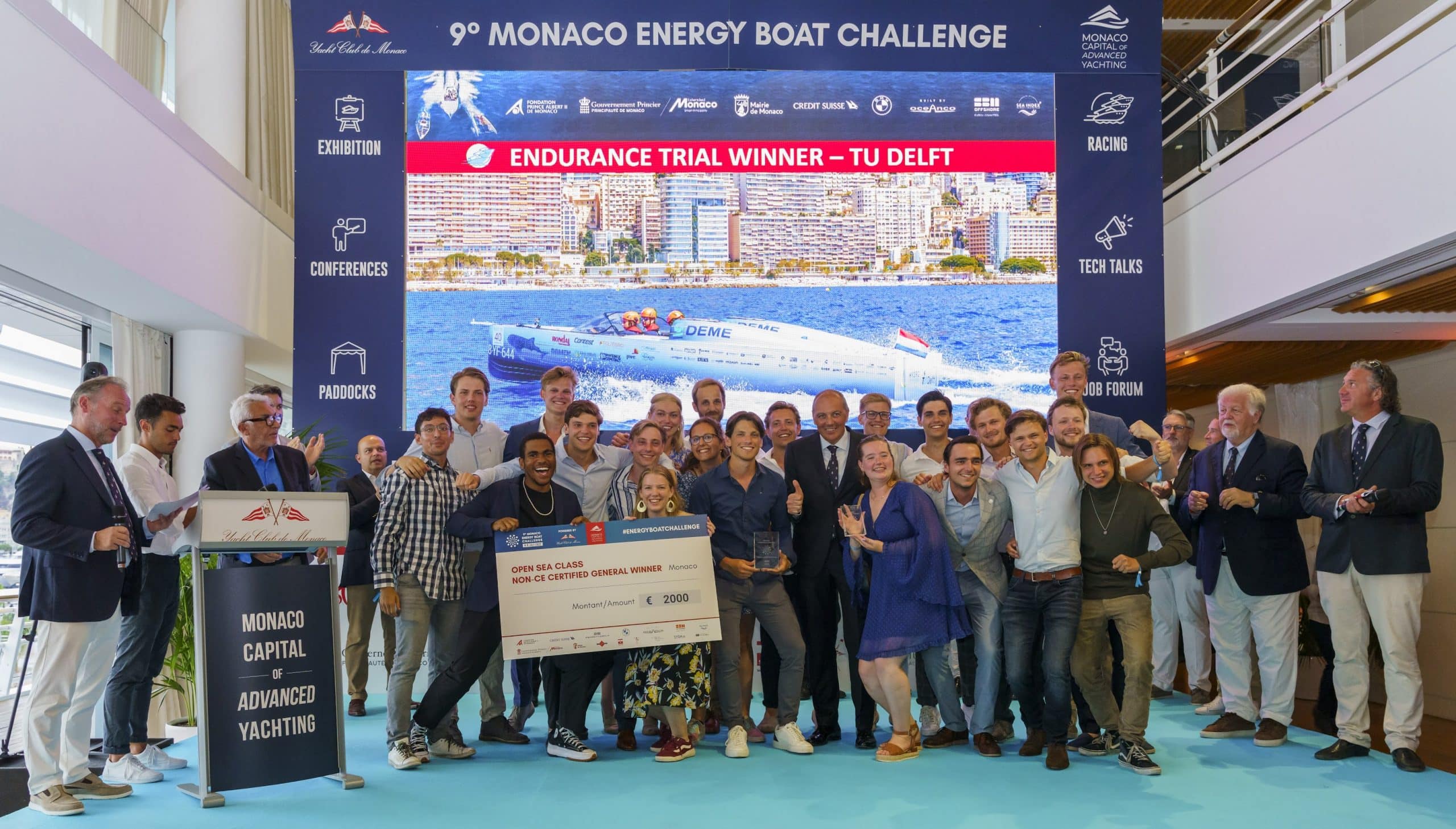The TU Delft Hydromotion team is a team of 25 highly ambitious students who conceptualize, design, and build advanced boats in the span of only a year. The goal of the organization is to build vessels that run on sustainable fuel alternatives to inspire the greater maritime industry, while simultaneously showing the world the possibilities that a group of driven students can realize.
News
Hydrogen-powered sailing from Delft to Monaco

Every year, an entirely new team is selected, bringing fresh engineering ideas and varying engineering backgrounds to the table. Although it may seem like a step backwards in terms of experience, the new engineers are guided by the former members, while having full design and creative freedom for their sub systems. Meanwhile, former members can continue with their careers, applying the knowledge they gained realizing the vessel.
While developing the boat, the 2022 team used ODOS’ Cloud Commander and Kvaser Leaf Light HS V2 M12‘s for real time data monitoring and post-analysis. This allowed them to study the boat’s subsystems, pinpoint failures and make changes based on real data. For example, the team used the data to compare traditional planing and foil-assisted planing, assessing the characteristics of different propellers they had on hand. Multiple theories went against the real data. They initially believed a two-blade propeller would be better for the boat, but the data suggested that a three-blade version would give the team a very clear edge.

TU Delft Hydromotion also used Cloud Commander for troubleshooting. During a key race this year – the 9th Monaco Energy Boat Challenge – the boat shut off unintentionally. “After half an hour analysing precise timestamped data, we identified the problem. Due to the complexity of this system, it would have been too time-consuming to troubleshoot the machine without this data. Examples like these occurred countless times during the testing phase and race phase alike,” recounted Kyon Caldera, Embedded Systems Engineer.

ODOS’ Cloud Commander and Kvaser’s CAN interfaces enabled TU Delft Hydromotion to effectively test their foiling hydrogen boat, contributing to their success in winning their division in the Open Sea class of the Monaco Energy Boat challenge. The team also placed very well in the most meaningful race of the challenge, the Endurance race. Covering more than twice the distance of their nearest competitors, they showed that not only is hydrogen an extremely promising sustainable energy source, but that if a group of students could do it in a year, so could industry!
Who is involved?
TU Delft Hydromotion
https://hydromotionteam.nl/about-2/
Kvaser
https://www.kvaser.com
Which products are the team using?
ODOS’ Cloud Commander and several Kvaser Leaf Light HS V2 M12’s for real time data monitoring and post-analysis.
 linkedin
linkedin twitter
twitter youtube
youtube youku
youku weixin
weixin